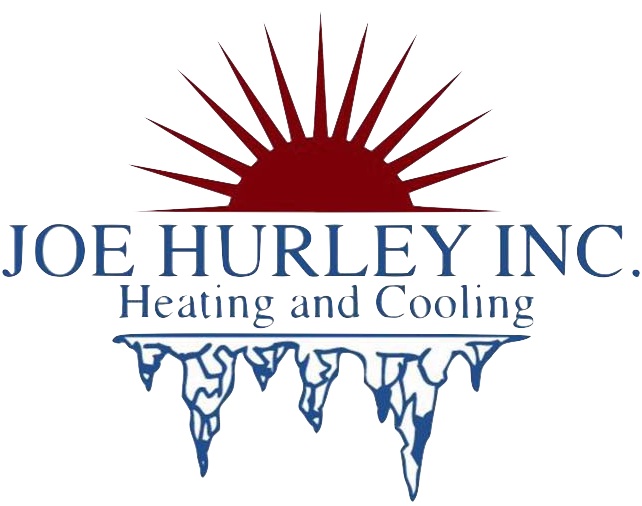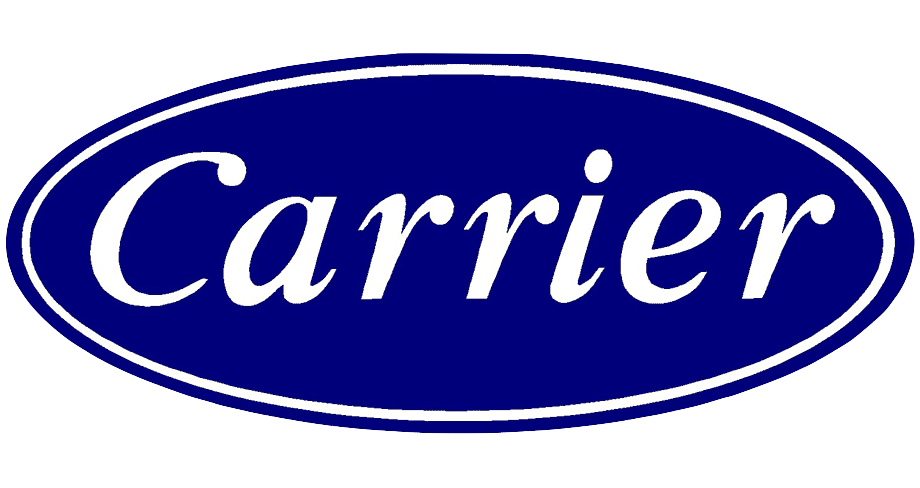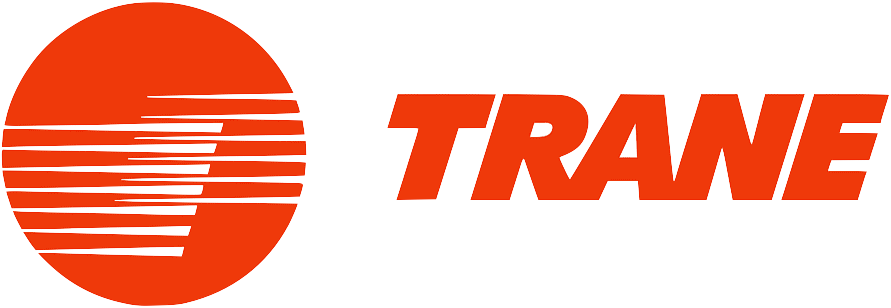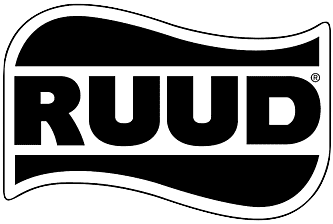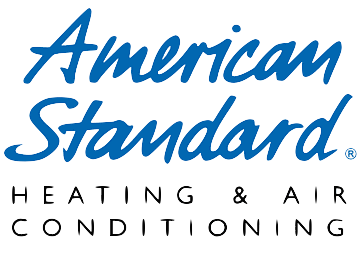FAQs
Joe Hurley Inc
Learn More About Joe Hurley Inc
Have an HVAC-related question? We have the answer! Check out our FAQs below to learn more about Joe Hurley Inc.
-
What do I do if my system is not heating?
If you have no heat or hot water, do the following. First, check to make sure the power supply is on. Check the fuses, pilot light, and that your fuel tank is not empty. A blown-out pilot light is most often the culprit. If it is not lit, you'll need to re-ignite by carefully following the instructions in your owner's manual. If you still have not isolated the problem, check the pump to make sure it is running. An inoperable pump requires the service of HVAC contractors and cannot be handled on your own. You also will have to contact a service contractor if you have a sealed heating system.
-
Can an Energy Star air conditioner lower my cooling bills?
When buying a new air conditioner, consider an Energy Star-certified unit. It will be more efficient and lower energy costs. Replacing a 10-year-old air conditioner with a new Energy Star air conditioner can save an average of $14/month on your electric bill. Energy Star air conditioners use at least 10% less energy than conventional models. They often have timers for temperature control, cutting down on greenhouse gases, and lowering energy bills. Energy Star air conditioners must meet specific standards on SEER ratings, an industry measure of efficiency. Look for SEER ratings in the high teens. The maximum SEER rating is 20. Contact the professional air conditioner contractors at Joe Hurley Inc for more information!
-
How does a home comfort system differ from an air conditioner or heater?
Quite simply, a home comfort system is a year-round solution and implementation of multiple systems to make your home perfectly comfortable all year long. The HVAC contractors at Joe Hurley Inc will properly install a home comfort system in your home.
-
What is a SEER rating on an air conditioner?
Before you buy a new air conditioner, take a minute to learn some industry language. SEER stands for Seasonal Energy Efficiency Rating. A higher number means more efficiency. The federal government requires a minimum SEER of 13 out of a maximum rating of 20. Why does the government set standards? Higher-efficiency air conditioners save energy and cause less pollution. Consumers also save money on electric bills. Well-designed new air conditioners are up to 70% more efficient than the current average. This can yield significant savings for consumers over the service life of their air conditioners. If you are in need of air conditioner repair or replacement, you can rely on the experts at Joe Hurley Inc.
-
How do I know if I am making the best investment in a new HVAC system?
After your HVAC dealer has met with you and suggested a customized heating or cooling solution, it's time for you to figure out if it's the right one for you. Look at the following factors:
Dependability- Does the manufacturer have a solid reputation and track record for products and services?
Energy Savings- Is the new HVAC system energy efficient? If it carries the EPA Energy Star label, you know it meets strict efficiency standards.
Air Quality- Make sure the HVAC system will reduce indoor air pollution.
Climate Control- Look for variable speed systems that offer better temperature control.
Never hesitate to reach out to us with any other additional questions you may have about your HVAC service!
-
Where should I locate my new central air conditioner?
When buying a new central air unit, keep in mind that in order for it to keep you cool, it has to stay cool when running. Here are some suggestions to help find the best spot for your new unit:
1. Make sure your installer picks a spot that is in a shaded area all day or, at the very least, part of the day.
2. Keep the outdoor unit away from shrubs, so that it can emit “waste” heat. If anything blocks the unit, it cannot expel heat effectively, forcing the unit to work harder.
3. The outdoor unit makes noise when it runs, so place it away from bedroom windows and away from neighboring homes, where its operating sounds can’t be heard.
The air conditioner contractors at Joe Hurley Inc will be sure to answer any other questions you may have regarding your new central air conditioning unit.
-
What is the lifespan of a central air conditioner?
If you have an older central air conditioner that does not cool well, it may be time to replace it. Central air conditioners generally last about 15 years, though newer ones may have a longer lifespan. The costs for air conditioner repair can add up, especially with older models. Here are questions to ask yourself when deciding whether to invest in a new central air conditioner:
1. Is the air conditioner requiring frequent repairs, making it less cost-efficient?
2. Do you need to replace costly major components, such as the compressor?
3. Will it be more affordable in the long run to replace your old system with a more efficient unit that will lower your monthly electricity costs?
4. Is your warranty still good? Ask the manufacturer. Warranties generally vary from one year for parts and labor to five years for compressor replacement. But some manufacturers now offer 10-year warranties.
-
What are some heating alternatives to furnaces and boilers?
The most common way to heat your home is with a furnace or boiler. But there are a variety of other technologies available. Stay informed about the choices because there may be a time that you need to replace or upgrade your existing heating system. Reaching out to our expert HVAC contractors is a good way to stay informed about alternate options for heating your home. Alternatives to furnaces and boilers include:
Active solar heating – The sun heats air or liquid enclosed in a panel. Homeowners often use solar heat as an additional heating source. Over time, it can pay for itself.
Electric resistance heating – A costly way to heat your home, it converts the energy in the electricity to heat. Electric heat is often more expensive than heat produced in the home using natural gas, propane, and oil furnaces.
Heat pumps – Heat pumps draw heat from a cool area to a warm area, making the cool space cooler and the warm space warmer. Because they move heat rather than generate heat, heat pumps are energy-efficient.
Radiant heat – These systems heat floors or panels in the wall or ceiling of a house. They may use a variety of energy sources—electricity, boilers, solar energy, or wood and pellet-fuel heating.
Space Heaters – Portable heaters or small space heaters are often used when the existing heating system is not adequate for a home or apartment. Small space heaters can be affordable to use if you heat one room or supplement heat in one area. Most of these heaters can be dangerous if not used properly and precautions are not taken to ensure your safety.
Wood and pellet-fuel heating – This is an alternative home heating method that uses biomass or waste sources for fuel. It can be expensive to convert your home from an electric or petroleum heat system to this method.
-
What are the advantages of owning a gas furnace?
Natural gas, electric, or oil? It’s hard to know which type of energy fuel is better for home heating. Before choosing the fuel type for a new heating system, be sure to reach out to the expert HVAC contractors at Joe Hurley Inc. You also may want to weigh the advantages and disadvantages of each type of energy fuel type. Even with seasonal increases, high-efficiency gas furnaces cost less to operate than electric furnaces. Electric heating is sometimes described as “thin” and “dry” and can be the least efficient. Natural gas is always available, while the oil market is unstable. You also do not have the hassle of refilling and maintaining storage tanks with natural gas, as you do with oil. Natural gas requires no large storage tanks in your basement. It is fed through a line directly into the house.
-
What should I look for when buying a furnace?
A furnace is not the most desirable purchase you will ever make, but it is key to your comfort and your family’s comfort. Instead of just calling your neighborhood fuel dealer to ask for help with a replacement, do some research and shopping on your own. The extra time you put into buying a new furnace may save you thousands over the service life of your furnace. The HVAC contractors at Joe Hurley Inc will answer any additional questions you may have about your furnace. In general, here’s what to look for when buying a new furnace:
Compare the performance of different brands and models- Read the product literature, something most American consumers don’t bother to do. Sometimes literature can be found on the companies’ websites.
Ask questions when you talk to dealers- How energy-efficient is the new furnace? How much does the appliance cost to operate? A more efficient appliance costs less to run.
Check guides like Consumer Reports to find out how models and brands compare for energy savings and repair histories- Read Energy Guide labels and the manufacturers’ fact sheets.
Ask yourself how the purchase will fit into your budget- Sometimes it makes sense to pay more upfront for a high-efficiency furnace when you figure the energy savings over the service life of the product.
-
What should I do about an HVAC system that doesn’t seem to work well in a couple of rooms?
If one or two rooms are unusually hot or cold in your home, you may need an HVAC contractor to identify the problem. The contractor can do an in-home evaluation and will use diagnostic equipment to understand the problems.
Here are questions to ask the contractor who reviews your heating and cooling system:
Is the heating and cooling system operating properly?
- Are ducts well sealed?
- Is air being distributed throughout the house?
- Are there areas of high humidity or moisture buildup?
- Does the home’s insulation seem adequate?
A variety of problems can cause certain rooms in your house to overheat or get too cold. That is why it is a good idea to call a specialist. Your HVAC system may be the problem and need repairs. Your home may have inadequate insulation. The contractor should check every room, from the basement to the attic.
-
How can I improve the air quality in my home?
The latest advances in air quality combine ultraviolet-light technology and high-efficiency air filters to combat air pollution in your home. If allergies or asthma are a problem, you may want to invest in a heating and cooling system that reduces indoor air pollution and improves air quality. Look for HVAC systems that offer high-efficiency air cleaning with HEPA filters. HEPA removes most particles from the air. However, filters need cleaning for a pre-determined amount of time.
-
What is NATE?
North American Technician Excellence (NATE) is a third-party independent testing organization that certifies HVAC technicians. Here’s what consumers need to know about NATE and its importance in ensuring quality service for heating and cooling systems:
- Many of the nation’s utilities endorse NATE because its certified technicians know how to keep HVAC systems operating efficiently, which saves energy.
- NATE offers its Consumer Contractor Connection business locator that lets consumers know where they can find NATE-certified technicians in their area.
- There are NATE-certified installation and service technicians in every state and parts of Canada.
